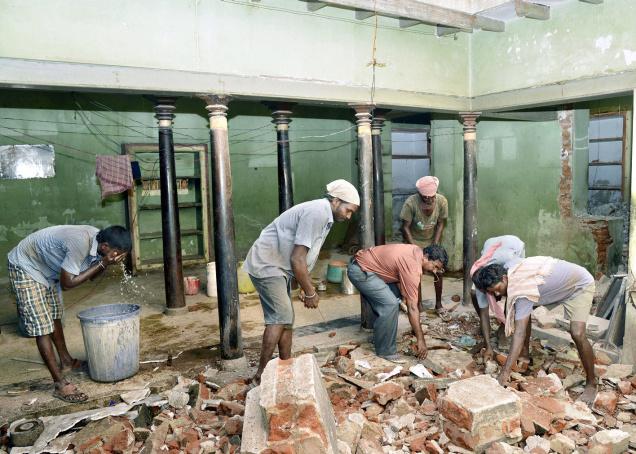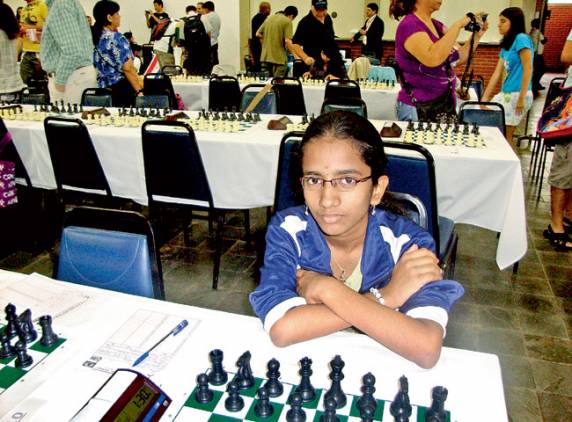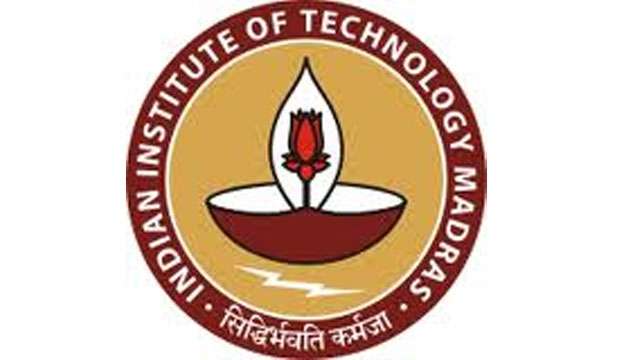
ERASING HISTORY: Demolition work in progress at U.V. Swaminatha Iyer’s house at Triplicane in Chennai on Saturday. / Photo R. Ravindran / The Hindu
It was here that Rabindranath Tagore called on Swaminatha Iyer in 1926
Thyagaraja Vilas, the house of the grand old man of Tamil literature (Tamil Thaatha), U.V. Swaminatha Iyer, and one of the city’s landmarks, will soon disappear.
The descendants of Iyer have reportedly sold the property at Thiruvatteeswaranpet and the buyer is demolishing the house. The inner walls have been brought down. Nameboards bearing the titles ‘Thyagaraja Vilas’ and ‘U.Ve. Swaminatha Iyer Illam’ have been removed.
The man overseeing the demolition said that he worked for the buyer.
“It is really sad because it is from this house he edited and published many ancient literary works such as Silapathikaram, Patthupaatu and Ettuthogai after collecting palmleaf manuscripts from every nook and corner of the country. Even a university cannot match his efforts,” says writer Indira Parthasarathy.
When Rabindranath Tagore visited Chennai in 1926, he called on Iyer at this house and even penned a poem in praise of Iyer’s contribution.
Iyer came to this house as a tenant in 1904 following his appointment as a Tamil teacher of the Presidency College in 1903. The monthly rent was Rs. 20. Subsequently, he bought the house and named it after Thyagaraja Chettiayar, who was instrumental in getting him the post of Tamil teacher of the Kumbakonam Arts College in the wake of his retirement in 1880.
Parthasarathy, an alumnus of the Kumbakonam College, says the demolition will not only remove the memories of Iyer but also those of Thyagaraja Chettiyar, an eminent scholar, after whom the house was named.
“Chettiyar’s contribution to Tamil is explained by the fact that the principal of the Kumbakonam College, an English man, had his image engraved on one of the pillars of the college,” says Prof. Parthasarathy.
Iyer had explained why he named the house after Chettiyar. “It is a gesture to express my gratitude; even atonement, as I had failed to acknowledge Chettiyar’s name in my edition of the ‘Seevaka Chinthamani,’ one of the five great epics in Tamil,” he stated in his biography of Thyagaraja Chettiyar.
Ki. Va. Jagannathan, one of the students of Iyer, had recalled in his book ‘Yenathu Aasiriyarpiran’ that the owner of the house happily sold the house to Iyer though he had taken advance from another person.
Swaminatha Iyer worked in Presidency College till 1919. Later, he was the principal of the Meenakshi Tamil College from 1924 to 1927. He left the house only in 1942 along with many Chennai residents, fearing aerial bombardment during the Second World War.
As the former ‘asthana vidwan’ of the Thiruvavaduthurai Mutt, he was allowed to stay in a house of the Mutt at Thirukazhukundram. He died there on April 28, 1942 following a brief illness.
“The government should intervene and secure the house of Swaminatha Iyer as it did in the case of the house where Subramania Bharati resided. Iyer, Bharathi and Pudumaipithan form the Trinity of the Tamil language and cultural awakening. We cannot afford to ignore the fact,” says Prof. Parthasarathy.
source: http://www.TheHindu.com / Home> News> States> TamilNadu / by B. Kolappan / Chennai, September 16th, 2012



